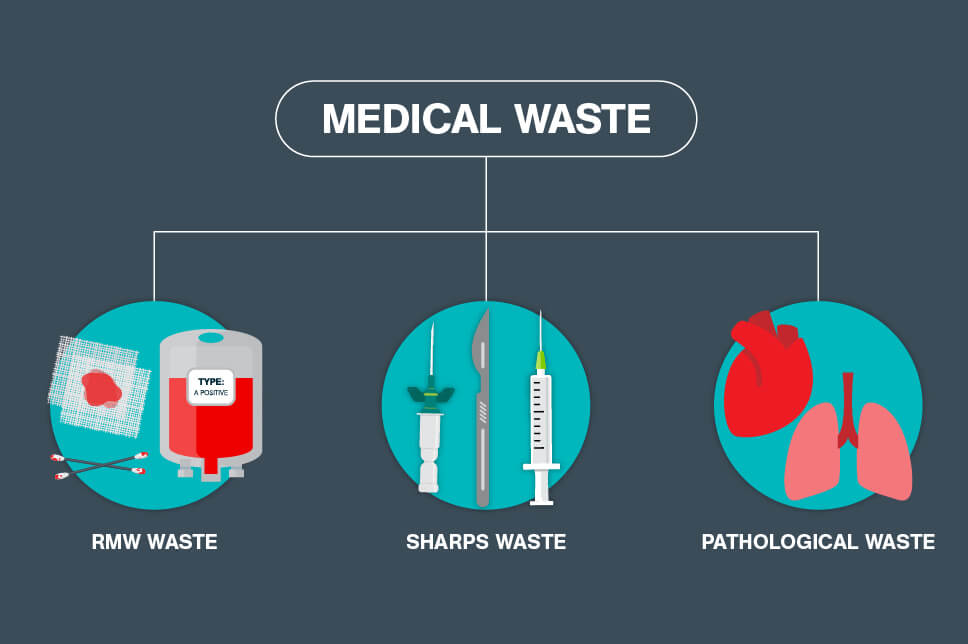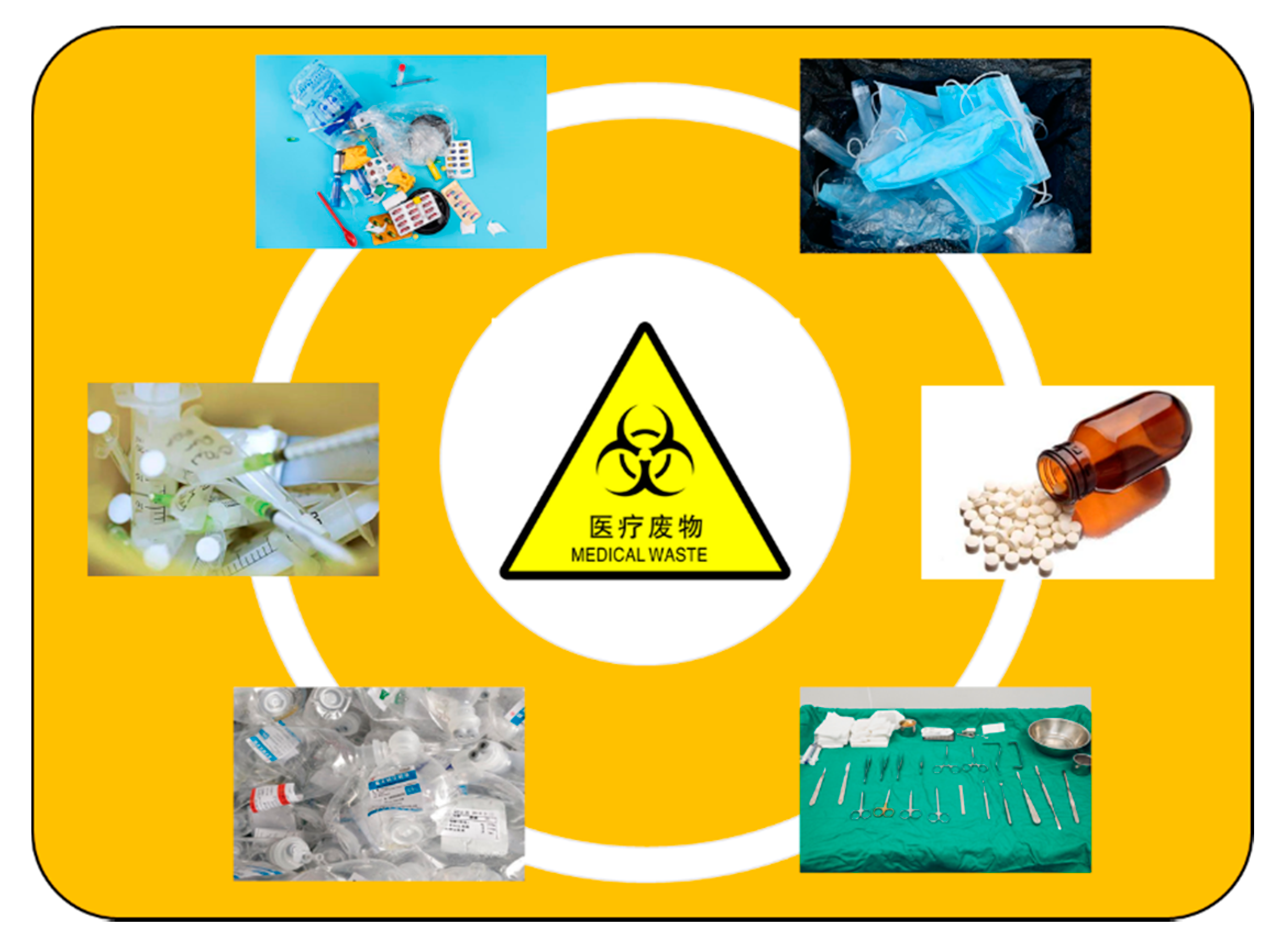Professional Medical Waste Disposal Services: Making Sure Conformity and Security
Professional Medical Waste Disposal Services: Making Sure Conformity and Security
Blog Article
Navigating Medical Garbage Disposal: Necessary Solutions for Health Care Facilities
In the detailed landscape of medical care operations, the administration of clinical waste is an essential facet that requires thorough interest. Medical care centers, whether large hospitals or little clinics, are handed over with the duty of handling, treating, and taking care of a broad selection of clinical waste streams. The complexities involved in navigating via the governing needs, guaranteeing appropriate waste segregation, and executing risk-free collection and transport processes are extremely important. Understanding the essential solutions that support clinical garbage disposal is not simply a matter of compliance yet also a basic component in guarding public health and wellness and environmental wellness. The complexities of this procedure are important for medical care facilities, and the competence offered in this realm plays a crucial role in keeping the honesty of healthcare systems.
Regulatory Compliance Assistance
For medical care centers, making certain governing compliance support is essential to keep correct handling and disposal of medical waste. Adhering to laws stated by organizations such as the Environmental Security Agency (EPA) and the Occupational Security and Health And Wellness Administration (OSHA) is vital to stop ecological contamination, safeguard public health, and avoid possible legal repercussions. Governing compliance assistance offers medical care facilities with advice on exactly how to correctly set apart, store, transport, and get rid of various kinds of medical waste based on regional, state, and federal regulations. This assistance includes aid in creating and carrying out comprehensive waste administration strategies, conducting regular staff training sessions, and doing audits to make certain ongoing conformity. By partnering with governing compliance experts, health care centers can remain updated on advancing policies, reduce threats related to incorrect waste disposal, and ultimately contribute to a safer and a lot more lasting atmosphere for all.
Waste Partition Guidance

Health care centers must provide clear standards and training to team on just how to set apart waste properly. This includes dividing general waste from harmful materials such as sharps, transmittable waste, drugs, and chemical waste.
Collection and Transport Services

Proper collection and transportation services are necessary elements of the clinical garbage disposal process in health care facilities. These services guarantee that hazardous products are taken care of securely and in conformity with regulations to shield both the setting and public wellness. Health care centers rely upon specialized waste monitoring firms to provide efficient collection and transportation services customized to their requirements.
Clinical waste collection entails setting apart different kinds of waste at the point of generation, utilizing color-coded bags or bins to distinguish in between basic, hazardous, pharmaceutical, and other waste streams. Educated personnel need to perform this job to avoid contamination and ensure proper disposal. When accumulated, the waste is transported in committed automobiles outfitted to take care of unsafe materials safely. These vehicles comply with rigorous safety and security standards and comply with marked routes to accredited therapy centers for disposal through techniques such as sanitation, landfilling, or incineration.
Therapy and Disposal Solutions
In the realm of clinical garbage disposal for medical care centers, after the vital stage of collection and transport services, the focus moves in the direction of executing efficient therapy and disposal services. Therapy options often entail processes such as autoclaving, which uses vapor under stress to sanitize the waste. This approach is frequently used for infectious waste that has to be rendered non-hazardous prior to disposal. One more common therapy approach is incineration, where waste undergoes heats in regulated settings to lower check my reference its quantity and eliminate pathogens.
Disposal services incorporate the last step in the clinical waste monitoring process. Recycling and source healing are check these guys out likewise acquiring traction as lasting disposal options for particular types of clinical waste materials.
Effective treatment and disposal options are extremely important in ensuring conformity with policies and protecting public health and the atmosphere. Healthcare centers must very carefully examine and choose ideal techniques that straighten with their waste monitoring goals and sustainability initiatives.
Personnel Training and Education And Learning

To efficiently handle medical waste disposal in health care centers, thorough personnel training and education and learning play a crucial function in ensuring adherence to governing needs and preserving a risk-free setting. Proper training outfits team with the understanding and skills required to handle various types of medical waste, segregate them appropriately, and package them firmly for disposal. By informing employees on the threats related to incorrect handling of medical waste, centers can minimize the likelihood of accidents, contamination, and regulative infractions.

Verdict
To conclude, health care centers count on important medical waste disposal services to ensure regulative conformity, correct waste segregation, risk-free collection and transport, efficient treatment and disposal, as well as staff training and education and learning. These solutions play a vital function in preserving the health and safety and security read the article of both health care employees and the public, highlighting the value of appropriate monitoring of medical waste in health care setups.
For healthcare centers, ensuring regulative compliance assistance is vital to preserve proper handling and disposal of medical waste. Waste partition involves classifying different types of clinical waste to make sure proper handling, treatment, and disposal. This includes separating general waste from unsafe materials such as sharps, contagious waste, drugs, and chemical waste.Clinical waste collection entails setting apart various kinds of waste at the point of generation, making use of color-coded bags or bins to differentiate in between general, dangerous, pharmaceutical, and other waste streams.In the world of medical waste disposal for medical care centers, after the vital phase of collection and transport solutions, the emphasis shifts towards implementing reliable treatment and disposal services.
Report this page